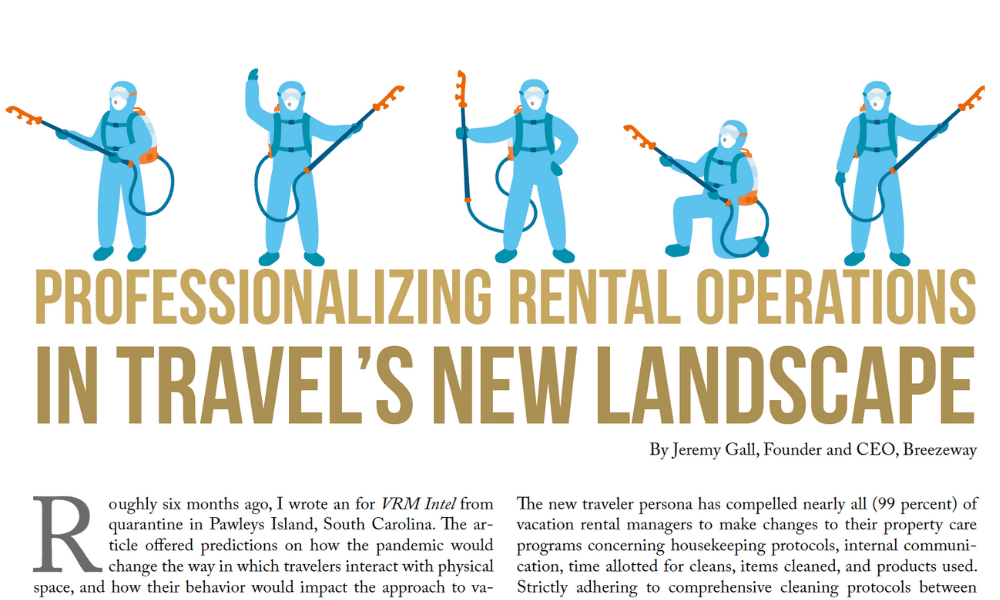
Roughly six months ago, I wrote for VRM Intel from quarantine in Pawleys Island, South Carolina. The article offered predictions on how the pandemic would change the way in which travelers interact with physical space, and how their behavior would impact the approach to vacation rental property preparation and client communication. We also discussed the opportunity these changes presented and how rental managers who prioritize professional and responsible operations will separate themselves from the occasional, “on-the-side” operator and grow along with the market.
Over the course of this most unusual and challenging year—which still has over two months and untold surprises in store—many within the vacation rental industry have navigated waves of cancelations, furloughs, executive orders, reopenings, and zero-to-sixty demand swings. While Airbnb passed the million booked-nights mark on July 8th for the first time in over 120 days, the predictability of future bookings is unclear; we aren’t out of the woods just yet with this global pandemic.
What is becoming clear, though, is an acceleration of the shifting focus on quality within the vacation rental market and the lasting operational changes that come with it.
We surveyed hundreds of vacation rental managers to take the pulse of how professionals plan to strengthen processes across guest and owner communication, housekeeping workflows, compliance with cleanliness and safety standards, and internal tracking and reporting. This article analyzes the results from our survey and discusses how 2020 has solidified the trend towards quality in vacation rentals and the resulting need for controlled property operations and client services.
Cleanliness Beyond Reproach
While professional vacation rental operators have always been focused on ensuring high cleaning standards for their units, cleanliness has taken center stage since March. This isn’t a surprise, and 97 percent of managers we surveyed think that COVID-19 has increased guest sensitivity regarding vacation rental cleanliness.
In fact, 66 percent think this sensitivity will change booking behaviors, and that cleanliness and safety will be more important considerations than location and price.
Guest hypervigilance as to property preparation and cleanliness start well before check-in, pulling travelers towards professionally managed rentals with predictable and trustworthy brands; we see this trend across hospitality, as well, by the way companies are promoting and branding cleaning standards.
The new traveler persona has compelled nearly all (99 percent) of vacation rental managers to make changes to their property care programs concerning housekeeping protocols, internal communication, time allotted for cleans, items cleaned, and products used. Strictly adhering to comprehensive cleaning protocols between each stay has become an even more critical component of property care, given the health implications.
Customizing checklists for each property is a popular way to help housekeepers cover the unique elements in the home and follow brand standards. Prior to COVID-19, 49 percent of vacation rental managers were using customized checklists and protocols, and an additional 30 percent of managers plan on doing so going forward, allowing them to add more control over how properties are prepared.
Better yet, 75 percent of managers are augmenting the items on their checklists to include guidance from health authorities.
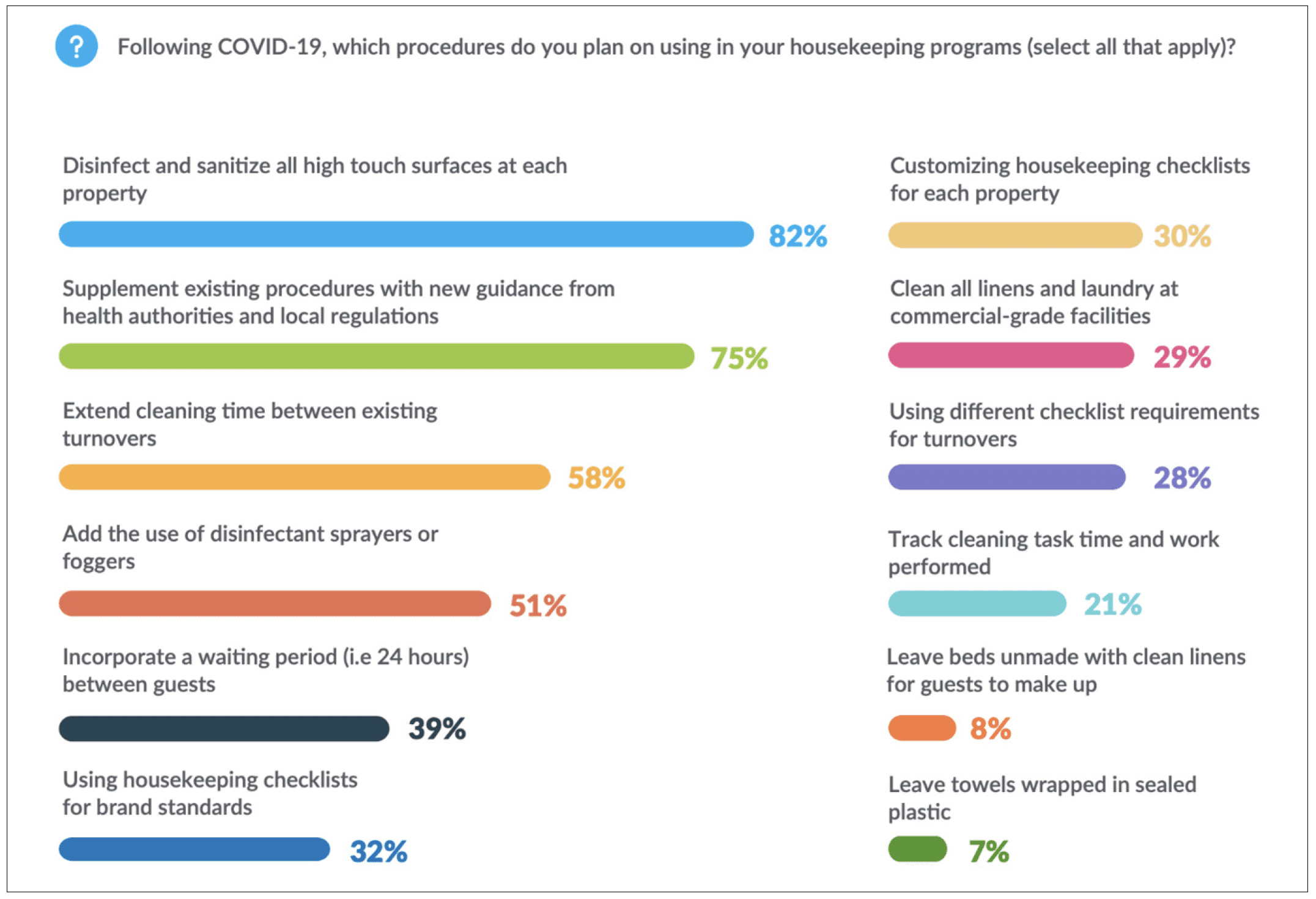
For those who smartly assign cleaning jobs to in-house and contracted housekeepers (even with prescriptive instructions for each property), having confidence in the quality of work is still not a given.
The managers we surveyed agree. Over 83 percent are strengthening their quality assurance programs, with the majority of operators independently inspecting every unit before the guest arrives. Using digital checklists for quality control not only ensures property preparation complies with brand standards but also makes it easier to store data on historical issues, conditions, appliance attributes, access codes, and Wi-Fi passwords. Rental managers have this granular property information at their fingertips on mobile phones to drive more predictive asset management and quickly diagnose issues, reduce repair time and costs, and prevent emergency maintenance issues.
COMMUNICATING Property and Guest Safety
Safety was already a trending topic in the industry before this year, with managers paying more attention to physical safety features such as smoke alarms, carbon monoxide detectors, and trip-and-fall hazards. Now safety—in terms of both cleanliness and property condition—is front and center for rental managers, guests, property owners, municipalities, and internal staff.
Over 84 percent of managers we surveyed are taking steps to improve safety and maintenance procedures; these changes include increasing the frequency of safety inspections and routine preventative maintenance.
Safety inspections are a growing trend that we expect to continue into 2021, and 13 percent of managers are taking additional steps to protect the safety of their owners’ assets by leveraging independent programs to certify rentals for safety and regulatory compliance.
The current environment has also stretched the meaning of “vacation rental safety” to include the hygiene and well-being of guests.
The most direct strategy for protecting the safety of guests is adding a buffer period between stays. Implementing waiting periods has been a hotly debated topic in the industry in 2020, and 42 percent of operators surveyed in June planned to implement a buffer to comply with guidance from leading regulators and authorities.
Vacasa, for example, automatically blocks time between reservations to prevent last-minute bookings for locations where “rest periods” are required. The company has added waiting periods to their standard protocol and suspended early check-ins and late checkouts to afford housekeepers adequate time to complete enhanced cleaning programs.
Performing work to safeguard your properties and guests is just half the battle, though. Communicating all the precautions you’ve taken is necessary to put guests at ease and sets the stage for a great in-stay experience.
Nearly three-quarters (74 percent) of the managers we surveyed plan to adjust their communication strategies before arrival and throughout the stay. This includes promoting enhanced programs on company marketing websites, sending details about contactless check-in procedures before arrival, communicating changes to in-stay concierge and maintenance services, sharing restrictions and closures in the area, and detailing safety and cleaning items provided for guest use (e.g., cleaning products, hand sanitizer, gloves, masks).
Popularity of Service Technology is on the Rise
We’ve spilled ink in other articles on the rise in guest expectations and its impact on the service demands placed on vacation rental managers. Vacation rental operators are well aware that the days of guests bringing their own bedsheets and toilet paper) are behind us.
But service is much more than the baseline essentials; as guests gravitate to more full-service rentals, managers are increasingly focused on how to optimize their service operations. Hotel operators, who have been forced to meet the ad hoc demands of room service and concierge, have long since adopted service optimization software separate from front desk, booking, and reservation management software.
Now, as this same service is needed at vacation rentals, devoting detailed care and service across unique properties is a major challenge with many moving pieces and increased demands.
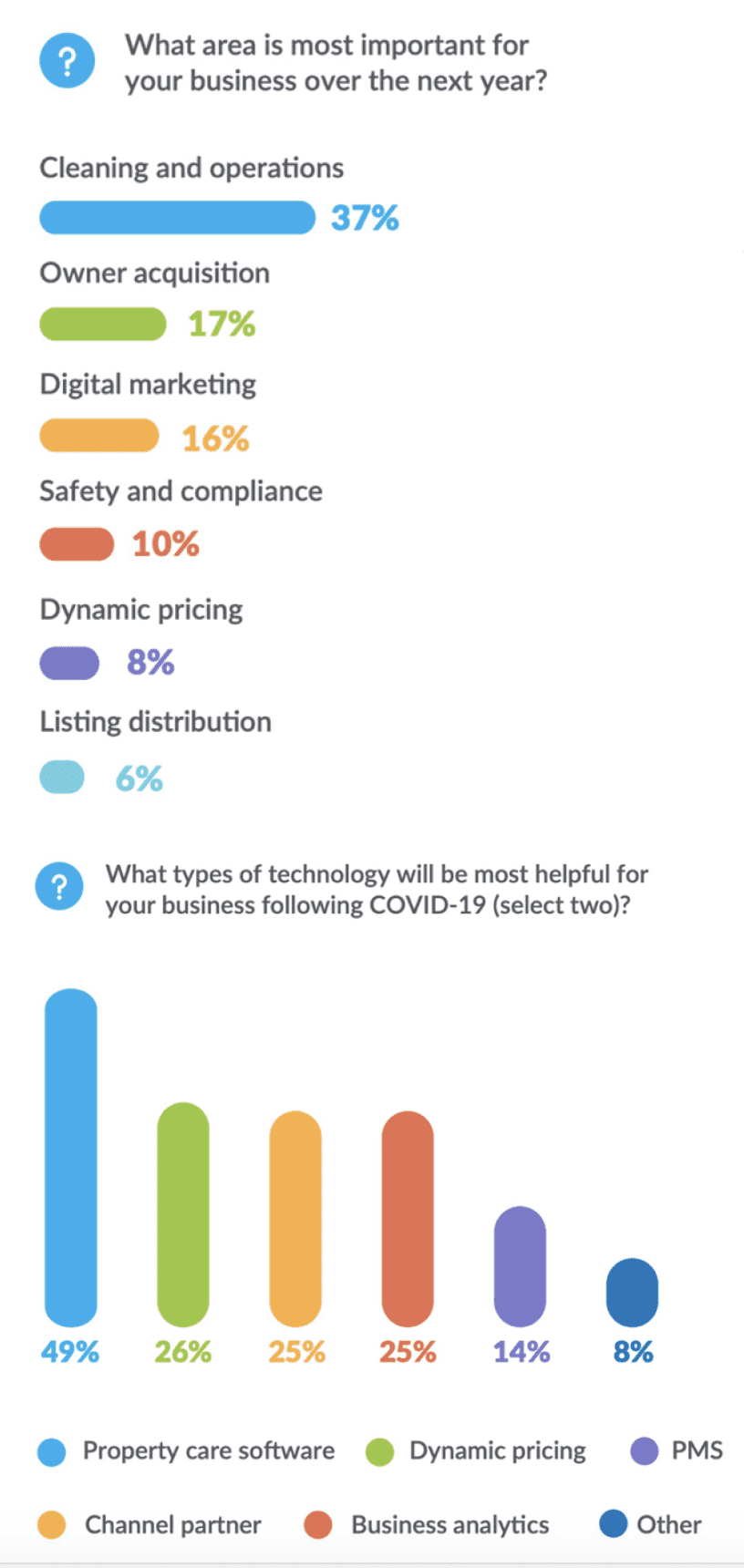 In fact, more than 42 percent of professional managers we surveyed are manually plugging gaps in property care by scheduling tasks from reservation reports, using paper checklists to perform quality assurance, and communicating internally through ad hoc systems, phone calls, and text threads. Another 40 percent are using a combination of tools which include their PMS systems, and workarounds that increase the likelihood that work will fall through the cracks.
In fact, more than 42 percent of professional managers we surveyed are manually plugging gaps in property care by scheduling tasks from reservation reports, using paper checklists to perform quality assurance, and communicating internally through ad hoc systems, phone calls, and text threads. Another 40 percent are using a combination of tools which include their PMS systems, and workarounds that increase the likelihood that work will fall through the cracks.
For many of these managers, though, COVID-19 has marked a shift in their technology priorities, driving the need for purpose-built property care tools to the front. In fact, the majority of managers feel that cleaning and operations are the most important areas of focus for their business over the next year, and 49 percent feel that property operations software will be the most helpful technology moving forward. The data show that the demand for service optimization is on the rise and demonstrates the continued evolution from “property manager” to “hospitality provider.”
Once again, the market for vacation rentals is going through a shift, one partially accelerated by the demands placed on travel and hospitality by a global pandemic. Facilitating the booking process has taken a backseat to servicing and preparing the property and building more confidence in safe and high-quality properties has become the focal point of travelers, property managers, and regulators. Our survey results from this summer illustrate this trend and outline the enhanced approach that rental managers are taking to crafting predictable and service-first experiences as true hospitality providers.
And once again, the push for professionalism presents an opportunity for managers to meet the changing demands of their clients. Using smart programs and internal workflows eases the complexities that vacation rental managers navigate—high tough, rigorous compliance, fast turnover, and unique space—and can create scalable property operations for growth and a stronger brand within their market.




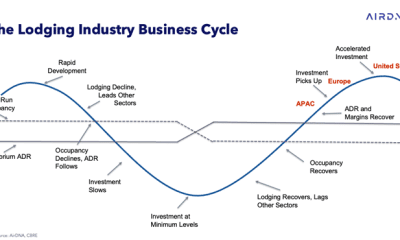

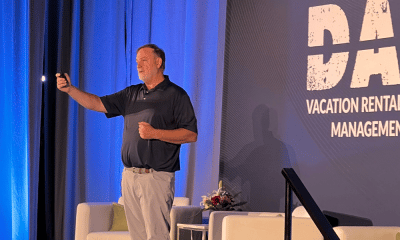
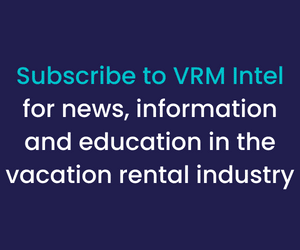




RSS